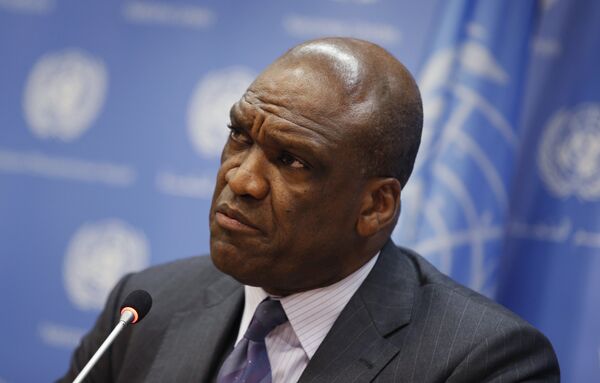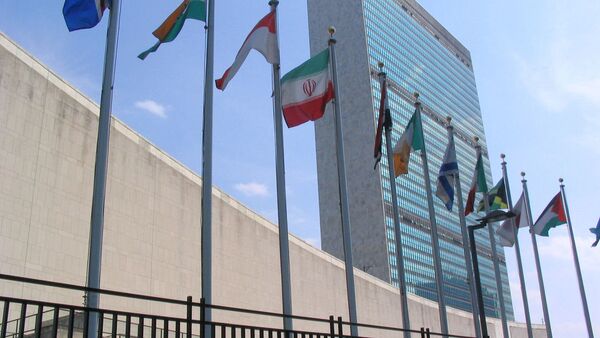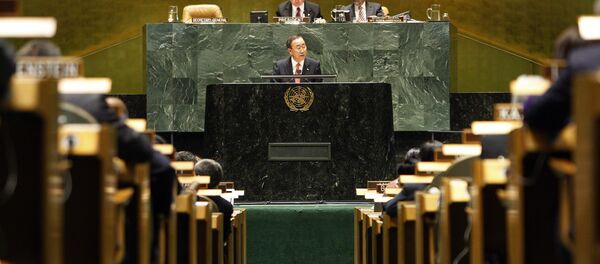An internal audit, obtained by the Associated Press, revealed crucial deficiencies and lapses in the UN's relationship with two foundations and several non-governmental organizations (NGOs) with links to former general assembly president John Ashe, who is facing bribery allegations.
The UN Secretariat scored a "partially satisfactory" overall result in the report, which judged the UN's compliance with its own policies and procedures. Worryingly, the audit concluded that "important — but not critical or pervasive — deficiencies exist."
Biggest financial corruption crisis to rock @UN since @KofiAnnan Oil-for-Food scandal #JohnAshe #OIOS #bribery https://t.co/cN9uSJ3bo5
— Lyndsay Farlow (@LyndsayFarlow) 4 April 2016
The concerns surround former UN ambassador John Ashe from Antigua and Barbuda, who served in the largely ceremonial role as General Assembly president from September 2013 to September 2014.
US federal authorities have accused Ashe of transforming the position into a "platform for profit" by accepting more than US$1 million in bribes during his 12 months in the role, while the investigation also alleges that six others, including diplomats and a humanitarian organization officer were involved.

The audit, carried out by the Office of Internal Oversight Services, was launched days after Ashe's arrest in October 2015, and has raised questions about the money the UN receives from outside entities.
No Evidence of Background Checks
The report claimed to uncover several examples where the UN's failure to properly investigate certain foundations and organizations risked exposing the body to groups with conflicting interests.
One example was based around the United Nations Office for Partnerships accepting a US$60,000 contribution from the Global Sustainability Foundation without performing adequate background checks.
It was later revealed that the foundation's leader, Sheri Yan, was an adviser to Ashe during his presidency and is also accused of being involved in the alleged bribery scheme.
The report also highlighted another instance, alleging that there was no evidence of background checks being undertaken before the UN engaged in projects with the International Organization for South-South Cooperation, whose president is Francis Lorenzo, a deputy UN ambassador from the Dominican Republic who is also caught up in the bribery allegations.
Suspended Dominican Republic UN ambassador Francis Lorenzo pleads guilty to… https://t.co/tDQdlFarrv #iNewsPhoto pic.twitter.com/QMDjrUyChR
— iNews Photo (@FRESLYLLC) 20 March 2016
As part of a series of recommendations, the report said the secretary-general Ban Ki-moon should take "appropriate corrective action" against staff members guilty of wrongdoing.
The audit also called for all UN bodies to thoroughly investigate all NGOs, businesses, foundations and other civil society groups before taking part in any projects with them.
Reacting to the findings, UN spokesman Stephane Dujarric said the secretary-general "is pleased that the audit… shows that many of the control systems in place within the organization were found to be working properly," but added that the secretary-general "is concerned at the findings related to instances where proper procedures were not followed."



